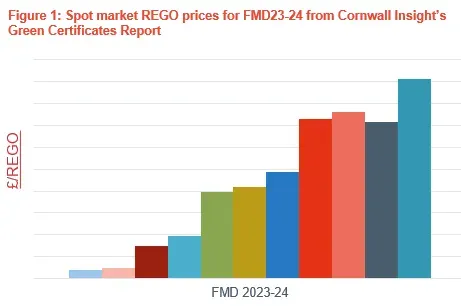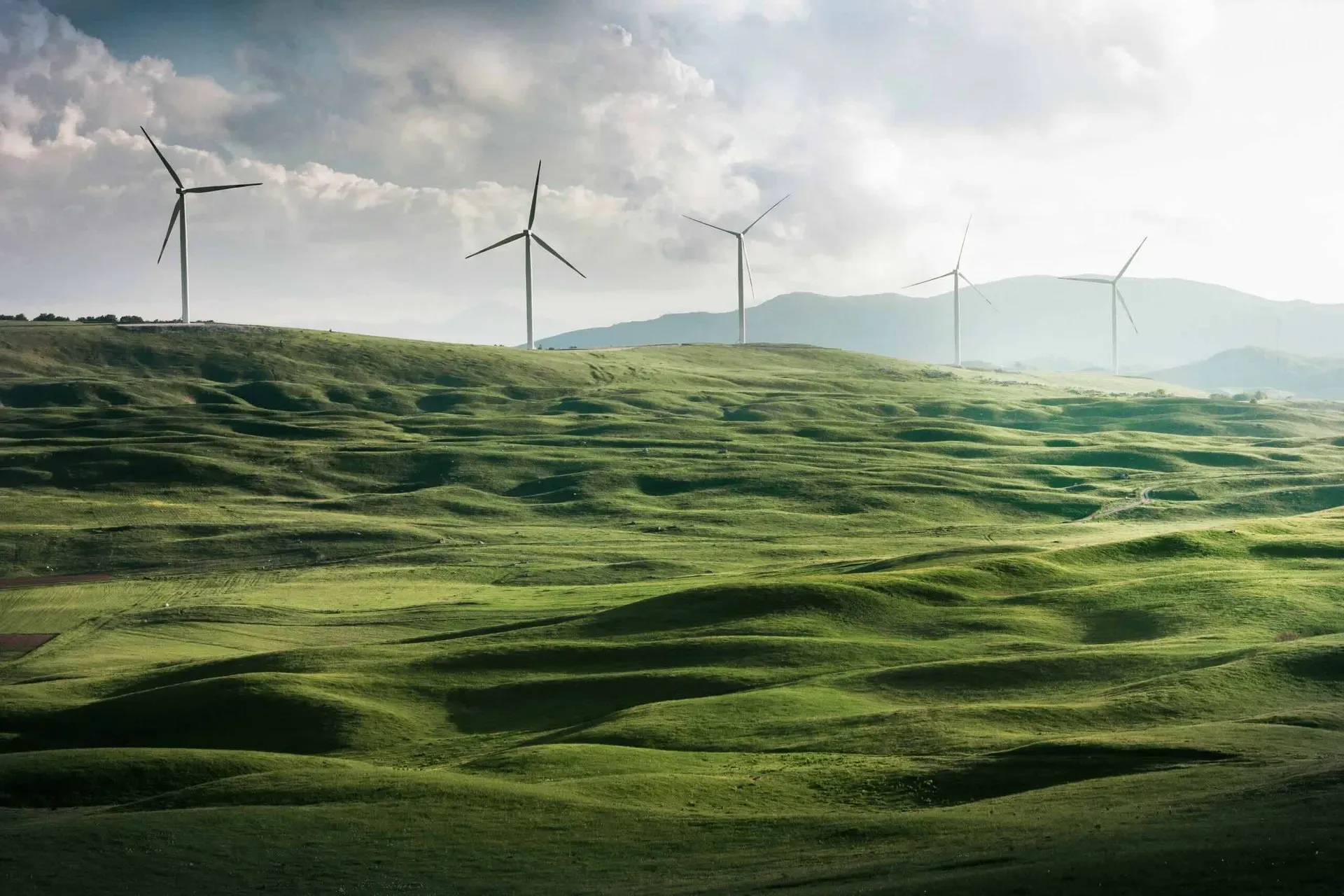Renewable Energy Guarantees of Origin, more commonly referred to as REGOs, are certificates issued to accredited renewable generators for every MWh of electricity they produce over a year period. The initial intentions of these certificates were to provide suppliers a means to prove the level of renewable generation they received and to avoid the ‘double counting’ of renewable generation on the system. Since their introduction, a new use for the certificates has arisen – providing a method for suppliers to sell tariffs with ‘green’ credentials, like ‘100% renewable electricity’. While initially limited in their usefulness beyond providing proof of green power procurement, they have become an integral part of green ESG criteria/claims across new industries. This combined with a widening consumer base has led to stark rises in their value over the past three years.
While produced with accredited renewable generation, REGOs do not have to be traded alongside the power that they are generated with and can be traded as completely separate entities – in essence attributing the ‘greenness’ of the electricity to the provision of these certificates rather than generation source from which the electricity was bought from. These certificates were introduced in 2005 alongside an added obligation on suppliers to publish the generation sources of their supplied electricity on an annual basis, known as a Fuel Mix Disclosure (FMD). To prove a certain amount of their generation came from renewable sources, suppliers redeem these certificates to Ofgem within three months of the FMD year end.

When providing their FMD data to Ofgem, suppliers are not mandated to provide REGOs to cover all supply volumes. For any residual generation – generation which is not REGO backed and therefore has no proof of its generation source – they must assume that the electricity was produced in a specific way, with the proportions being set out by the government in their annual Fuel Mix Disclosure data tables. The importance of REGOs grows substantially, however, if the supplier decides to sell tariffs with environmental credentials. In this case, they are required under their supply license to redeem enough REGOs to Ofgem to prove the claimed environmental benefits of the supplied energy under the tariff.
Outside of changed consumer demand for green tariffs, the transition towards net zero has caused REGOs to:
- Have importance in increasing areas of industry outside of the supplier sphere
- Grow in demand over the past few years
- Exponentially increase in price, amid increasing demand and constrained supply.
The information in this blog has been taken from the results of our latest Green Certificates survey. If you would like to keep up to date on developments in the REGO and other green certificate markets, and would like to receive regular insight into market participant’s views on recent and future certificate pricing, demand, and drivers, please reach out to Tim Sowinski at t.sowinski@cornwall-insight.com for more information.
To keep up to date on the implications of changes in the REGO market to wider areas of industry, take a look into our Energy net zero services or contact Ben Reade at b.reade@cornwall-insight.com for more information.













